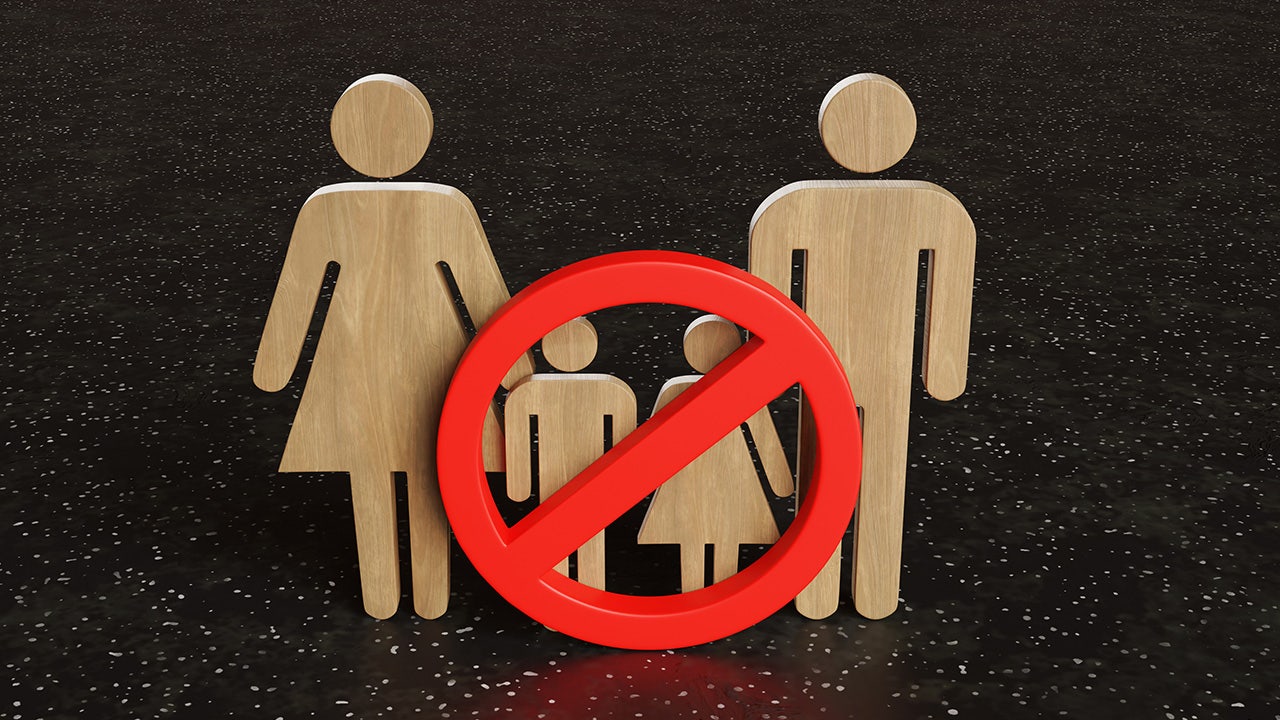Financial concerns are driving a growing number of young adults away from parenthood, according to a survey.
One expert stated that fertility is the issue of the 21st century.

Young Americans are increasingly not planning to have kids due to financial concerns, according to recent data, contributing to a worsening fertility crisis and declining birthrate.
According to the latest data from the Consumer Spending & Saving Index from MassMutual, more prospective parents are choosing between having children and financial stability, with nearly a quarter, 23%, of Millennials and Gen Z who do not have children saying they are not planning to become parents because of financial reasons.
According to the data, 31% of Millennials and Gen Z respondents who do not plan on becoming parents attribute this decision to the state of the social and political world, while over 40% of respondents said they couldn't have children at the expense of their financial freedom.
"Financial stressors are causing young adults to prioritize financial security over parenthood, according to Paul LaPiana, head of brand, product and affiliated distribution with MassMutual. This trend reflects a growing recognition of the importance of financial stability and independence in achieving long-term goals that every generation must confront."
The decline in the general fertility rate from 2007 to 2023, which was 21%, was accompanied by a 17% decrease in births and a 3% decrease from 2022 to 2023, as reported by the Centers for Disease Control and Prevention (CDC).
Nearly half of childless adults under 50 are unlikely to become parents, according to a Pew Research Center survey from July. This number increased by 10 percentage points between 2018 and 2023, from 37% to 47%.

According to Jesus Fernandez-Villaverde, a professor of economics at the University of Pennsylvania, the world population is currently reproducing below the replacement rate, as he has researched the global fertility crisis and made this calculation.
Villaverde has examined the correlation between society's reproductive rate and the fertility rate.
The average fertility rate of the world's population in 2021 was 2.3 births per woman, according to the United Nations World Population Prospects. This number is projected to decrease to 2.1 births per woman by 2050. However, at the current rate, Villaverde predicts that the human population will peak in approximately 30 years before starting to decline.
"The world population will continue to increase for another 30 to 35 years due to the rapid increase in life expectancy, which is known as the momentum effect. However, by 2055, the population will begin to decline, marking a significant shift. In my opinion, this issue is the most pressing challenge facing humanity at present."
"For the first time in 2023, it seems likely that humans will not be replacing themselves with children, marking a significant shift in our species' history. This change will have profound consequences, transforming our lives and circles in ways that are difficult to predict."
Villaverde stated that the decline in fertility rates over the past decade, which has occurred in both rich and poor countries, has happened at a faster rate than previously predicted by economists.

""Fertility has declined in every country worldwide, regardless of wealth, religion, or political ideology, and it has done so at a faster rate than predicted by demographers and economists," he stated."
Villaverde stated that apart from financial difficulties, the shift in social norms among many cultures towards valuing individualism over family and children has contributed to a rising trend of people who are child-free by choice.
He contends that if society adopts safer streets, kids can spend more time unsupervised and travel to school independently, relieving parents of their constant responsibility.

"We have an intense fixation on post-school activities," he stated. "We remove the child from school at 3:00, followed by piano, dancing, and football. If the child is not entertained for the next six hours, they will not have all the necessary skills to attend a top college."
As the population declines, hundreds of schools, universities, hospitals, and grocery stores in both urban and rural areas will be forced to close, leading to the inability of the American population to pay for Social Security, Medicare, the public debt, and the military. Furthermore, citizens will face challenges in obtaining everyday necessities, such as food.
"If the population decreases in a rural area, the main issue is that the local supermarket closes, leaving you without a nearby store to buy milk, which could be 50 miles away. This means you would have to drive an hour just to get milk, and the cost would be exorbitant."
Villaverde stated that while no one should be forced to have kids, policies should be encouraged to create communities where people desire to have more children.
He stated that currently, individuals are having fewer children than they desire.
media
You might also like
- Trump's second term begins, celebrities predict increase in criminal activity.
- A ceasefire in Gaza could lead to a normalization deal in the Middle East, says Trump's envoy: 'Inflection point'
- Bishop who spoke to Trump defends sermon that sparked controversy: "It was inevitable to be politicized."
- Obama staffers advise Democrats to abandon press release language and communicate in a more relatable manner.
- Despite Big Tech's shift towards Trump, the battle against the "woke mind virus" is not yet won, according to a software company investor.



















